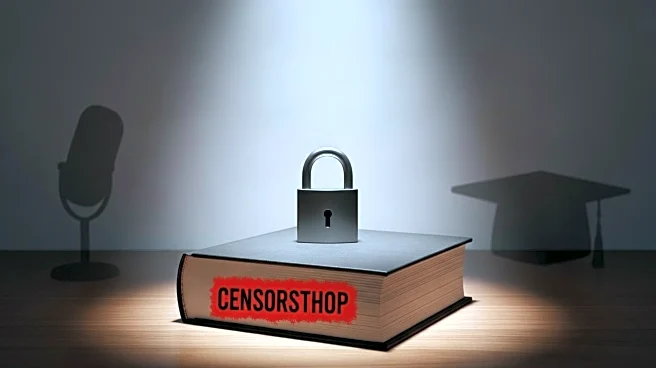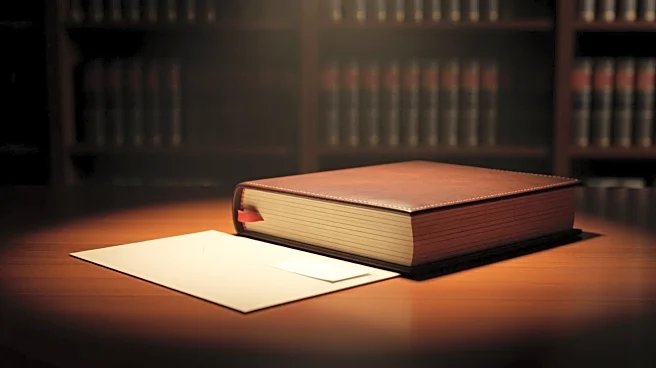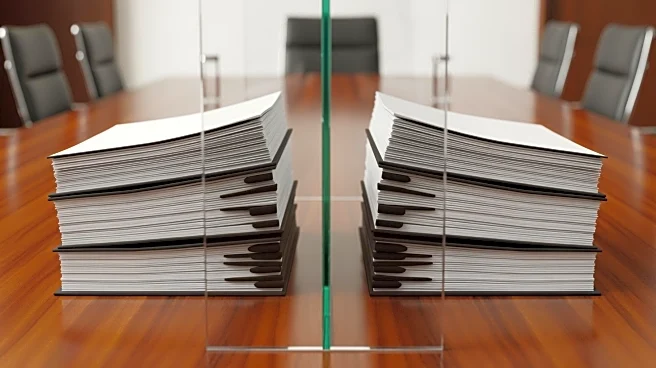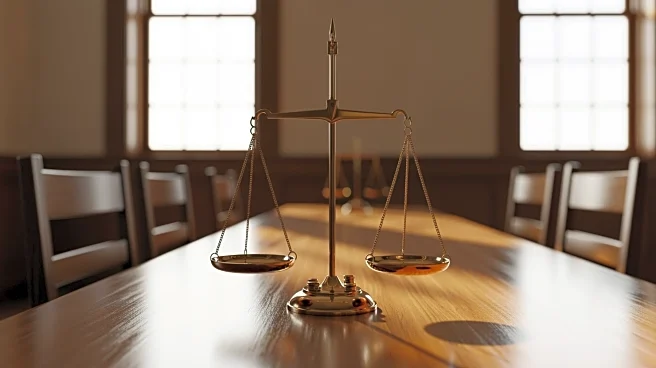What is the story about?
What's Happening?
Recent events in the United States have sparked significant debate over censorship and free speech, particularly in academic and media circles. According to Inside Higher Ed, a record number of professors have been dismissed for expressing controversial views, following the assassination of Charlie Kirk. One notable case involves Darren Michael, a theater professor at Austin Peay State University, who was terminated for reposting a headline critical of Kirk's stance on gun rights. The university cited the post as insensitive and disrespectful, leading to his dismissal without due process. Additionally, the suspension of late-night host Jimmy Kimmel by ABC, following pressure from FCC Chairman Brendan Carr, has raised alarms about corporate and governmental suppression of free speech.
Why It's Important?
These developments highlight a growing tension between free expression and institutional control in the U.S. The dismissal of academics and media figures for their views raises concerns about the erosion of academic freedom and the chilling effect on public discourse. The involvement of government officials in media decisions further complicates the landscape, suggesting potential overreach and the politicization of free speech issues. This situation underscores the need for robust protections for free expression, particularly in educational and media environments, to ensure diverse viewpoints can be shared without fear of retribution.
What's Next?
The ongoing debate over censorship is likely to intensify, with potential legal challenges and public protests advocating for stronger free speech protections. Universities and media organizations may face increased scrutiny and pressure to uphold principles of free expression while balancing community standards. Policymakers could be prompted to revisit regulations governing media and academic freedom, potentially leading to legislative efforts aimed at safeguarding these rights. The broader societal implications of these events may also influence public opinion and voter priorities in upcoming elections.
Beyond the Headlines
The current climate of censorship reflects deeper cultural and political divides in the U.S., where ideological battles are increasingly fought through control of information and expression. This trend raises ethical questions about the role of institutions in moderating speech and the potential consequences of suppressing dissenting voices. The situation may also prompt a reevaluation of the balance between free speech and accountability, particularly in the context of misinformation and its impact on democratic processes.














